#alia and paul
Text
rewatching dune 2 and i completely forgot how batshit insane it is that paul uses his first lines in the movie to try and manifest his mom's miscarriage
#like WHAT#we really glossed over how mentally unwell he is my poor meow meow#alia and paul#alia atreides#alia#paul atreides#paul#dune#dune part 2#dune 2#dune 2024#dune part ii#dune part two#dune movie#jessica and paul#jessica atreides#lady jessica#jessica
141 notes
·
View notes
Note
Has mention been made on this blog of the Harkonnens, yet? Specifically the Baron and his nephew Feyd—the book and all the adaptations imply (heavily or not) that there’s Something™️ up, there. …I might be the only one finding it hot, admittedly, but it is canon! 😆
Anon #2: There’s two uncle/nephew kisses in Dune 2 and lots of set up for implications with Paul and his unborn sister
I didn't think anything of Baron Harkonnen and Feyd while watching Dune 2, but now that you guys are saying this, I think I totally remember something from one of the other adaptations, maybe the 1984 one. Something that wasn't subtle at all.
I'm lowkey mad that Denis Villeneuve condensed the events of Dune 2 into six months when it was supposed to be several years, and most of all because Alia was supposed to already be born, BUT I loved the scene with Paul and Jessica, with Jessica relaying what Alia was saying, and Paul's dream/vision when he sees her grown up and she's telling him she loves him pretty much made up for it.
From what I've read, Villeneuve is working on adapting the next book, but the studio hasn't greenlit the third movie yet. I'm optimistic. Alia should be prominent and I think it's going to be GREAT.
In other news, as a Paul/Jessica shipper, I was disappointed that they didn't interact very much and Jessica's depiction was a little extreme. She's a really fascinating character and she was totally underserved by the movie. They have such great interactions in the SyFy channel miniseries, having conversations no one else can even come close to understanding. She's like his queen, even though Chani's the one having the babies. Maybe next movie.
#asks#anonymous#tw: incest#commentary#noiv#nr#r: nu#r: ms#r: brosis#alia and paul#jessica and paul#feyd and vladimir#new canon#first post#canon#nc#dune
5 notes
·
View notes
Text
Jessica spending half the movie scheming with her unborn fetus is the feminist revival Hollywood needed
#dune part two#dune 2#rebecca ferguson#timothée chalamet#lady jessica#dune#paul atreides#alia atreides#feel the need to disclaim that this post is a JOKE#yes colonialism is bad#No I don’t actually think Jessica is a feminist icon#Smh
6K notes
·
View notes
Text
They left out my favorite part of Dune, which is when the four year old tells the emperor he's a little bitch and the reverend mother her vibes are abhorrent.
3K notes
·
View notes
Text

#dune#feyd rautha#paul atreides#dune part two#austin butler#dune part 2#timothée chalamet#dune memes#alia atreides#anya taylor joy
2K notes
·
View notes
Text
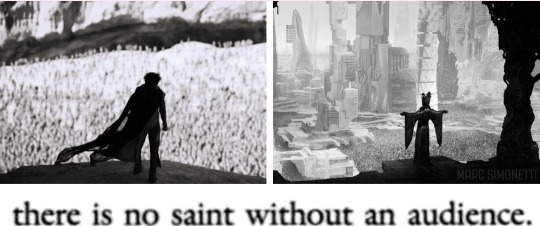

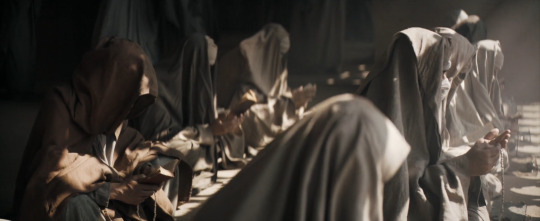

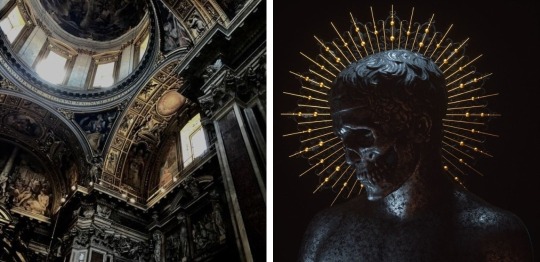
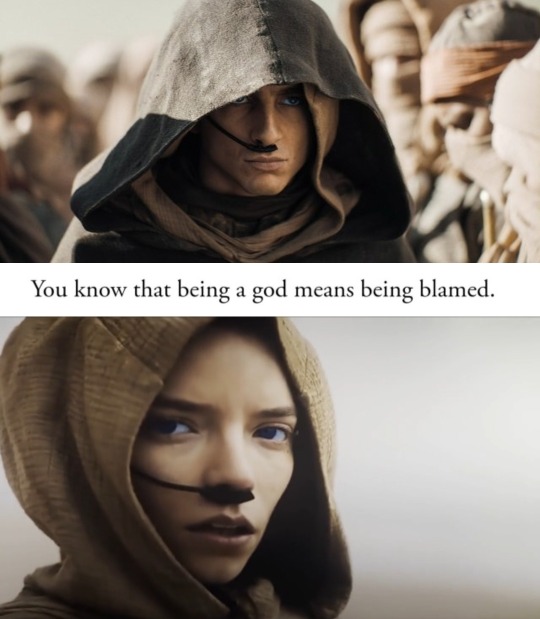


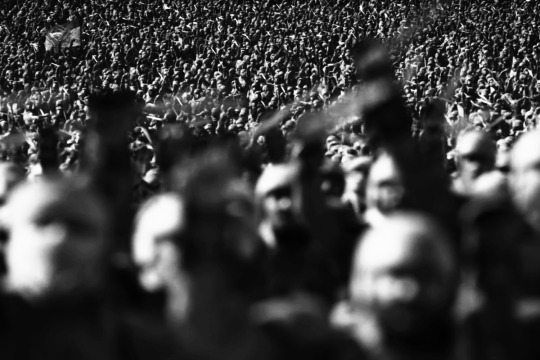
rulers of the atreides empire
2K notes
·
View notes
Text
Ah yes Dune, we have witch bitch wizard Mother of the millennium, narrative successor accidental-deliberate genocidal religious despot, eldest daughter traumacore war criminal princess, the only one who can think straight but is doomed by falling in love with the said prophet-despot, 4 year old space cocaine abomination turned cult-leader, and fridged malewife. Family of all time truly.
#actually *all* of them are war criminals aren’t they#dune#duneposting#dune books#house atreides#lady jessica#jessica atreides#paul atreides#chani kynes#chani#princess irulan#irulan corrino#leto atreides#alia atreides#duke leto atreides#saint alia of the knife#st alia of the knife#dune part 2#dune 2
2K notes
·
View notes
Text





paul and alia atreides + dune messiah, frank herbert
#paulalia#alia atreides#paul atreides#house atreides#dune messiah#comparatives#dune comparatives#dune books#dune#dune part two#dune part 2#*dune#*
2K notes
·
View notes
Text
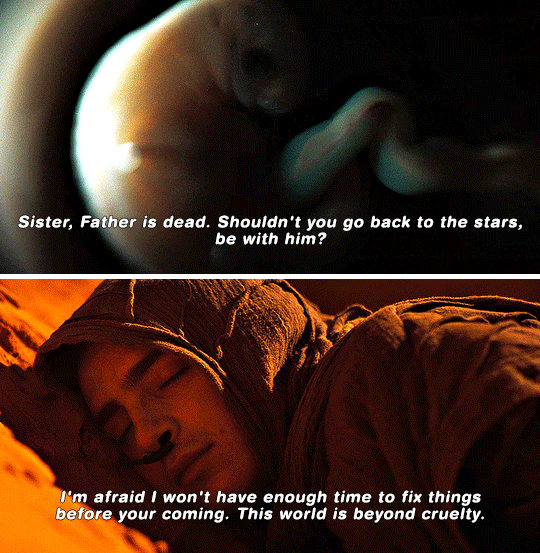


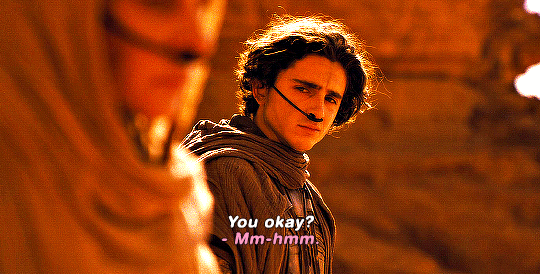



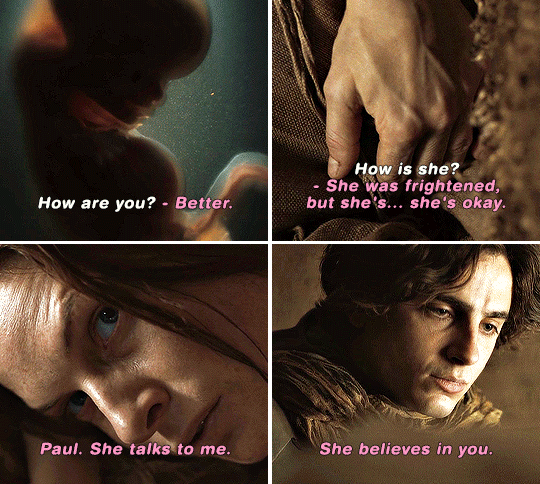
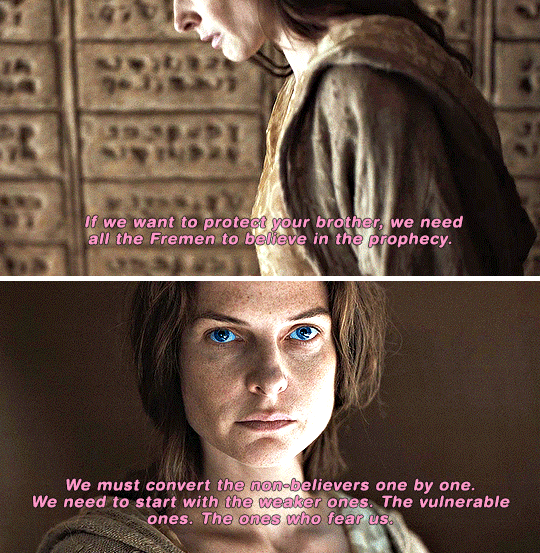

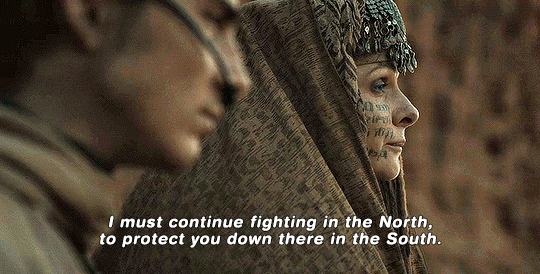
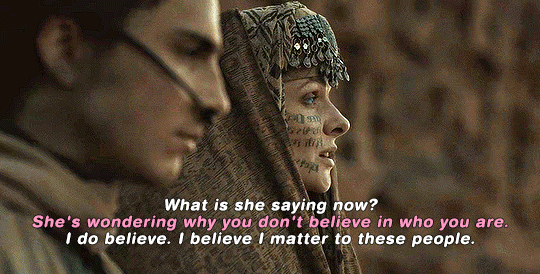



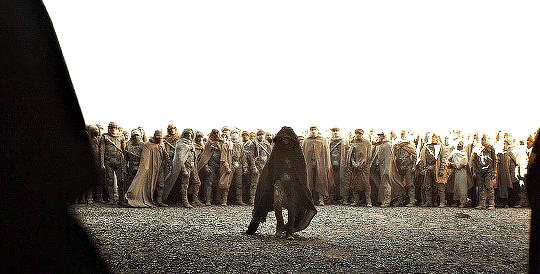
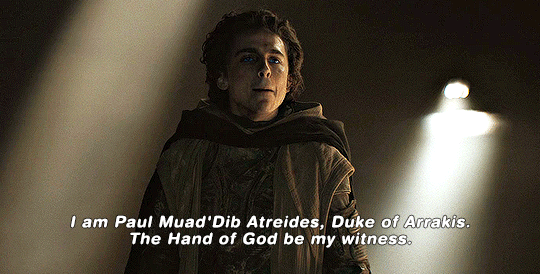
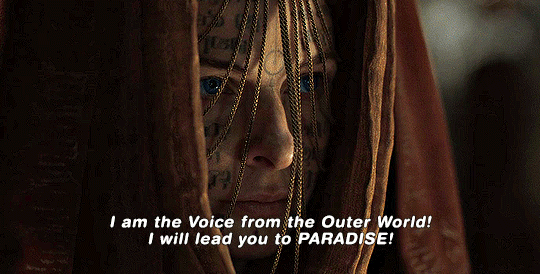


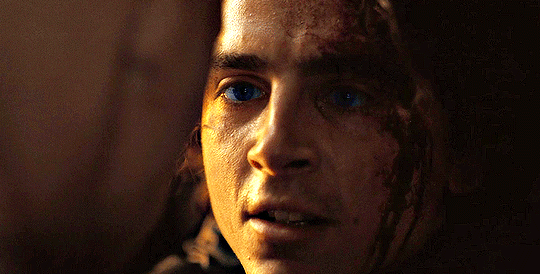
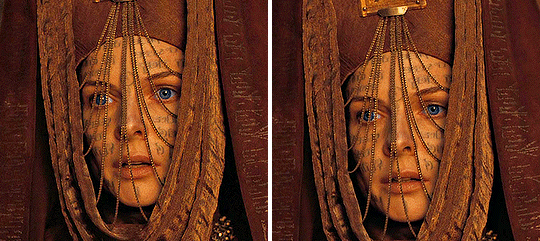

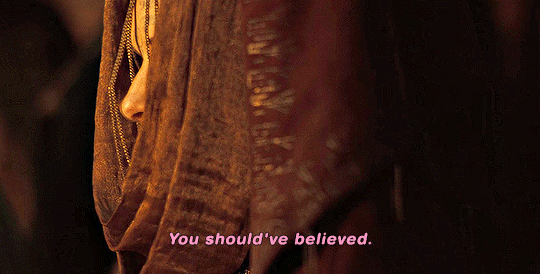
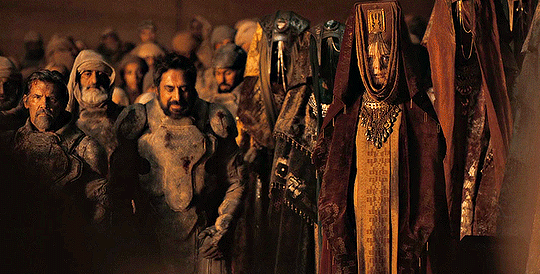
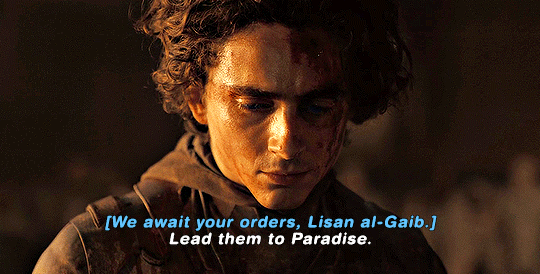
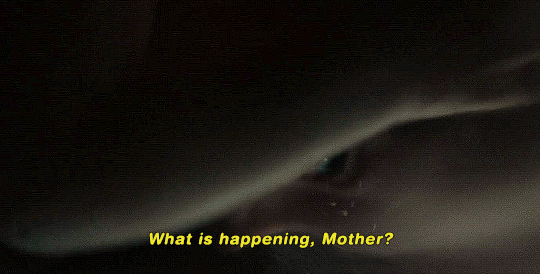
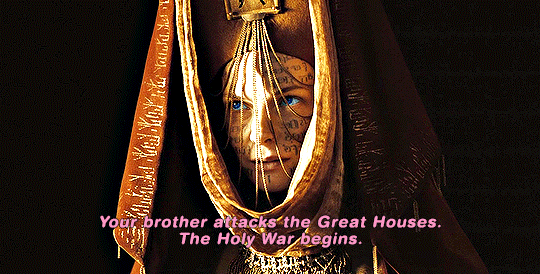
You believe in Paul?
Dune: Part Two (2024) dir. Denis Villeneuve
#dune part two#dune#dune part 2#rebecca ferguson#denis villeneuve#duneedit#filmedit#alia atreides#filmgifs#jessica atreides#paul atreides#chewieblog#doyouevenfilm#fyeahmovies#movies#bblecher#moviegifs#cinemapix#dailyflicks#*
1K notes
·
View notes
Text
So I saw Dune Part 2 yesterday and I was initially super crushed because of the deviation from book canon but the more I think about it the more I sorta like it…
So without further ado here’s a list of stuff I liked about Dune Part 2:
- all the scenes initially of Paul growing closer to the Fremen. You can clearly see that they become friends, accept him as a Feydakin, that they’re laughing, joking, hanging out. (And contrast that to the end of the movie, where Paul has no more Fremen friends, only followers. In the book, this is echoed, where Paul recognizes that he has lost his friends to the Muad’Dib religion. Take book Stilgar, who truly embodies this… by the end of the book, Paul says: “I have seen a friend [Stilgar] become a worshipper.”
- giving Chani explicit rejection of Paul’s messiah status was an interesting choice. Chani’s main thought over part 2 is that they don’t need religion to save them, that through Fremen power and desert power, the Fremen can save themselves. She recognizes that this fanatical worship can be a vehicle to control and enslave her people, and I sorta wish we saw Paul lean into that more… that they found a way to stay together and ‘fight’ the prophecy together based on Chani’s ideals…
- also, I love how engrained this rejection of religion and prophecy is in her character. Book Chani takes no issue with her Fremen name, Sihaya (desert spring), but movie Chani hates it “because it’s part of some prophecy.” Later, we see that despite her rejection of prophecy and religion, that the prophecy does indeed come to pass— the tears of desert spring save Himx aka, Chani saving Paul after he drinks The Water of Life. (Interesting how Jessica has to force Chani to save Paul using the Voice… another example of Jessica explicitly forcing Paul to become the messiah).
- adding more depth to Fremen culture— the South being the more religious fundamentalist tribes vs the North being more secular. Early on, the movie paints this immediate divide between the tribes of Fremen who accept Paul and Jessica versus those who treat them as offworlders (who murdered Jamis). In the books everyone accepts Paul and Jessica after Paul bests Jamis and Jessica quotes some scripture, but I think it makes more logical sense that there’s be friction over these two random offworlders coming in
- I love love loved Paul speaking at the meeting of the Fremen tribe leaders in the South. He fully accepts his messiah status, exercises his power of the Voice + his prescience as a way to command all the Fremen under his name
- I’m a big fan of omitting the two-year time skip, so with that I’m glad Leto II was skipped over entirely. I always felt that Leto II was an unnecessary character addition to the book, especially when he just dies and everyone sort of goes “oh well” and moves on, so I’m glad it’s omitted.
- another interesting choice was to paint Jessica as a straight up villain in comparison to her book counterpart was. The Jessica we see here is seemingly corrupted by the Water of Life: she walks around talking to herself (Alia) and scheming Paul’s ascent to Lisan-Al Gaib. She knows about the Holy War, which is the very thing Paul is trying to prevent, yet she expresses no concern about bringing it to fruition. (Probably because Jessica knows it’s impossible to prevent, but still.) The very last line of the movie, where Alia asks Jessica what’s going on and Jessica says “The Holy War has begun” is just total villain in my mind— explicit acceptance of the Holy War, like it’s just another stepping stone in her plan. Plus, the fact that Paul has visions of Jessica leading him into this period of great starvation totally cements her as a villian.
- going off of that, I like that we see Jessica undergoing actual agony when she takes The Water of Life. When book Jessica and Paul take The Water of Life they accept it calmly and without obvious pain (book Jessica was sitting with her eyes closed, as if sleeping), so this physical reaction that Jessica has to the poison adds to the idea that The Water of Life did change her in a negative way.
- I feel like so far we’ve been introduced to Alia as just a weird talking fetus who’s been consorting with Jessica, so Paul’s vision where Alia says “I love you” really strikes home, that she really does care for Paul which we might not have understood otherwise
#I should probably add something about Feyd-Rautha bc I thought his scenes were really cool so that’s a TBC of this post#also I can’t believe they skipped over Count Fenring! The one person who could defeat Paul in battle… I’m crushed#dune#dune book#dune part two#dune part 2#chani kynes#paul atreides#jessica atreides#alia atreides#dune spoilers
3K notes
·
View notes
Text

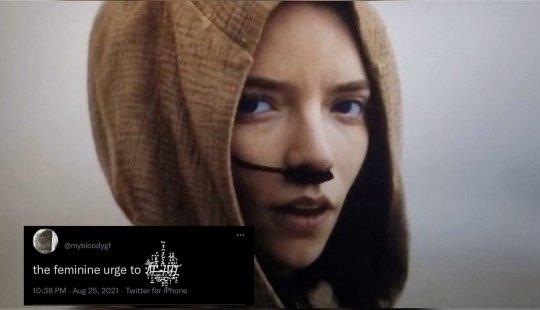
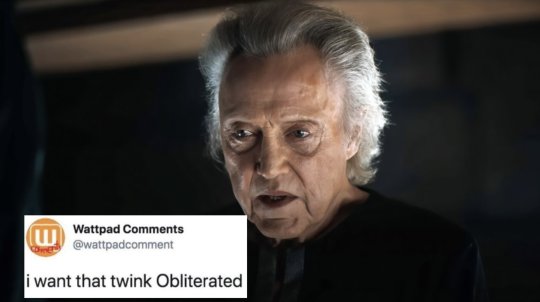
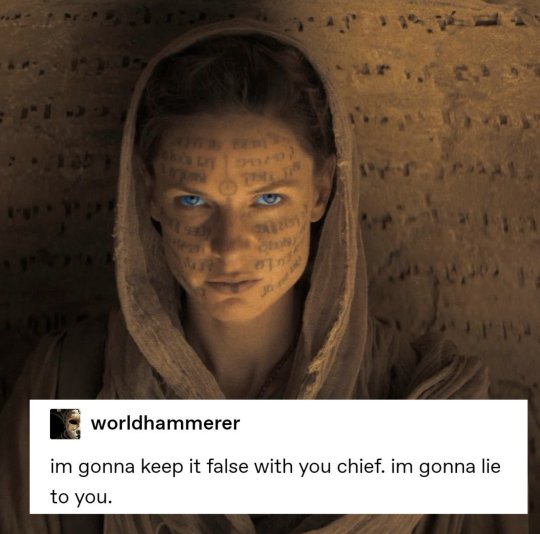
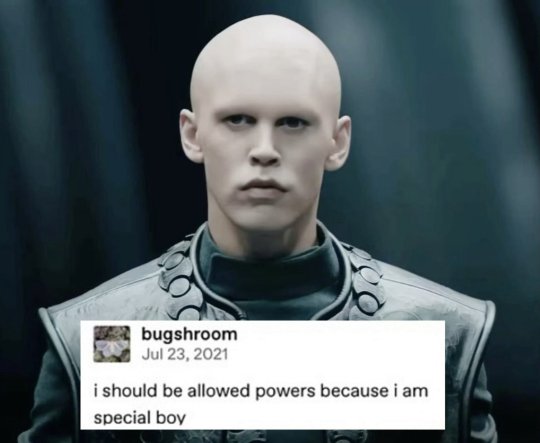
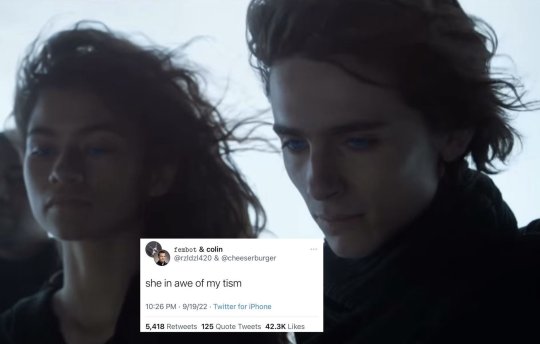
Dune incorrect quotes
#frank herbert's dune#dune part two#paul muad'dib#paul atreides#chani kynes#feyd rautha#feyd rautha harkonnen#lady jessica#alia atreides#emperor shaddam iv#incorrect quotes#dune incorrect quotes
1K notes
·
View notes
Text
thinking about paul saying "we're harkonnens. so this is how we'll survive. by being harkonnens" and about jessica saying "your father didn't believe in revenge" and paul replying "yeah well i do" and how things can die even as they continue to draw breath and how the harkonnens really did kill off all three of the atreides that night not just leto
#dune really explores every possible way someone can die without actually dying#paul's childhood self dying the night his father did#his atreides heritage dying when he seeks revenge#paul himself dying when he drinks the water of life#jessica the wife dying the night leto did#jessica the mother dying when she drinks the water of life#the girl alia could have been dying in the womb#stilgar and the other fremen dying when they become followers#it's all connected y'all#dune#dune part 1#dune part one#dune 1#dune 2021#dune 2024#dune part 2#dune part two#dune 2#dune movie#dune series#paul atreides#paul#jessica atreides#jessica#lady jessica#muad'dib
1K notes
·
View notes
Text

#Alia was really there in utero asking for a play by play while stirring shit#This fiendish fetus was really going mom create problems#Classic lil sister behaviour#I just loved the convoys between Jessica and alia#Though I missed how freaked out Jessica is by alia#bene gesserit#dune#dune 2021#paul atreides#dune memes#frank herbert#dune messiah#children of dune#chapterhouse: dune#duncan idaho#god emperor of dune#Dune 2024#alia atreides#lady jessica atreides#Lady jessica#Arrakis#dune part two#dune part ii#dune part 2#anya taylor joy#rebecca ferguson#timothee chamalet#austin butler
1K notes
·
View notes
Text
Dune Part Two Spoilers…
So like…When Paul silenced the Reverend Mother and she fell back with the force of it and just whispered in horrified shock “Abomination” …
Did anyone else clock Lady Jessica’s reaction and face (The instant snap of the head glare with anger and indignation) and then go home and research Dune lore bc you haven’t read the books and discover that ‘abomination’ means something very specific to the Bene Gesserit and isn’t a word a Reverend Mother would throw out lightly?
#dune#dune part two#paul atreides#lady jessica#bene gesserit#dune part 2#dune spoilers#alia atreides#dune part two spoilers
2K notes
·
View notes
Text
something something Paul the son who was supposed to be a daughter, supposed to be the mother of the apotheosis and not the apotheosis himself, a prophecy fulfilled but just slightly to the left
something something Alia the daughter who should have been, except she came out Wrong, her mind playing host to generations of women and also her weird dead grandfather for some reason
something something siblings who get described as two halves of the same person, who could communicate when one of them was still inside the womb, both of them arrived before their time and not what anyone expected
#dune#dune spoilers#i guess#paul atreides#alia atreides#i can't wait to watch them be weird together in dune messiah#god imagine having your 90-generation eugenics plan nerfed at the finish line by ONE WOMAN who disobeyed orders for love#real normal family the atreides
1K notes
·
View notes
Text
The Voice from the Outer World
Dune is a story of failure. SPOILERS for Dune Part 2 below
Power corrupts and all of that. We all know this. So we would be able to avoid it, right? If you know what happens you can chose another option. You would be different.
And here's a story that shows that even when you know all of this and more and can literally see the future it's still not enough.
I get why people often think that to avoid this the person in power shouldn't want that power. That this would make them somehow immune. And this logic has multiple faults (like - how can you be good at doing something you hate?) and one of them is that just not wanting to abuse power doesn't mean you would do right things with it.
We are reminded multiple times in the film (and the books also aren't shy about it) that Fremen religious belief in a saviour is not something that arose naturally. It's a belief seeded by Bene Gesserit's Missionaria Protectiva. They seeded superstitions and myths in different cultures so they could use them in a future emergency. Everything Fremen believe about their Mahdi was created so their faith could be used by a Bene Gesserit in need. And both Jessica and Paul are aware of this even before they even set a foot on Arrakis.
It's specifically made for the saviour to be a foreign one (Lisan al-Gaib is The Voice from the Outer World) because the people who made and planned to use this prophecy were ones from an outsider culture. Paul doesn't hijack Fremen beliefs to insert himself as their white saviour. These beliefs was specifically created for someone like him to use.
It was made with purpose of hijacking Fremen religion into protecting the foreigners who know how this prophecy was constructed. This is a parasitic belief (cuckoo-like faith) and the truth doesn't set anyone free. We see why with Stilgar as he wants to believe so much that everything becomes a sign. Even when he's told this has been fabricated and he was manipulated he warps it into something that supports his beliefs not undermines them. I'm sure you've seen this in real life, in real politics if not religion.
Jessica and Chani got changed the most from their book versions. They've become opposite sides of the ideological divide. Not between religion and lack of it - Jessica obviously not a believer - but between using people and letting them decide their own future.
Book Jessica is more apprehensive of Paul's choices. She's often more worried he may not survive the trials than pushing for them for power. In here she becomes the driving force of using the messianic belief Bene Gesserit implanted for Paul's benefit. She makes sure Fremen believe he fits the story. She doesn't care about Paul's wishes to avoid this burden. She knows it doesn't matter when he tells the people the truth about Bene Gesserit, their abilities and their manipulation techniques. Belief is impervious to proof and confirmation bias makes you reject all evidence to the contrary.
But then, in the film, Jessica is kind of possessed. Stilgar warns Paul not to listen to the djinn but neither he nor his mother can stop listening to the voices. The film removes Alia's book doings but replaces them with foreshadowing of what she becomes. She whispers the truths about the future to her mother even before she is born. Funny how this change make her, not Paul, the first fully prescient Atreides. She is manipulating the events when Paul refuses to and that's foreshadowing too. When Jessica took the Water of Life while pregnant she did it for the power this new position among the Fremen would give her. Alia never stood a chance. She was pre-born into this.
The only one trying to stand in the way of succumbing to the power corruption is movie version of Chani. She was never believer in a saviour. She wants her people to save themselves. They already have a plan for a better future that doesn't involve killing worlds for the Empire they never wanted anything to do with. They were not supposed to be warriors of the prophet. She sees this for what it is - a way to control her people. She understands this is another form of enslavement. The only difference is that this one is embraced. No one listens to her when she tells them the truth. They only see what they want to see.
The power that comes from being close to the rule is just as blinding when you stand close to the throne as it is when you sit on it.
And the sad part is she knows she played a part in this happening to as she convinced Paul to give this a try. She didn't see the visions he saw so she hoped he can remain the person she fell in love with. When he submits to the way prescience shows him and takes over the faith we feel her heartbreak. She watches him becoming what he feared and everyone around him stops her from trying to save him (not just other Fremen or Jessica - Gurney puts atomic arsenal in Paul's hands).
Paul doesn't bring freedom. He just changes who holds the power but in the end the structures of power remain (the similarities between Saudarkar and Fremen are not accidental). And billions die so it can happen. But billions is a an abstract number. It's much easier to feel the consequences when they hit close and personal.
Everyone around Paul gets to gain something - Gurney gets revenge on Rabban, Jessica and Stilgar get to destroy Harkonnens and Emperor. They are on top now. The power corrupts even before you even hold it. Just the promise of power is enough.
This film version of Chani doesn't let us forget that this is what we watch. That what is happening is not a good thing. We as humans have tendency to gloss over big numbers of deaths when it's unseen people with whom we have no emotional connections. Through her eyes the loss is so much more personal. She loses her Usul to Paul Muad'Dib. And he takes her people and her planet too.
As Paul says - they are Harkonnens too. And they do what Harkonnens do too. The difference was always cosmetic.
And one more thing. A lot is said about Arabic and Muslim influences in Fremen culture and religion but they aren't the only ones. One other is the word used for the places where Fremen live - Sietch. It comes from Zaporozhian Cossack name for their fortified encampments - sich.
In the West the name Cossacks invokes the cruel Russian Imperial forces that tsars used to pacify conquered territories. But this is not what comes to my mind first. In the Polish-Lithuanian Commonwealth they were free people living in the borderlands of the Commonwealth on the territories often attacked by the Ottomans. The constant raids from Turks meant they were warriors and constantly moving. But this also allowed for a lot of freedom as there wasn't a lot of direct control over these territories for the same reason. This meant that they were often joined by anyone wishing to have that freedom - from peasants escaping indenture to nobles escaping the law.
The dissatisfaction with Polish rule eventually lead to uprising and this part of Ukraine joined Russian Empire. That Empire destroyed all the freedoms Cossacks had and those independent warriors became just another enforcers of conformity for the Empire. They've become exactly what they fought against. I often wondered if Herbert chose the name Sietch intentionally to invoke this turn of events.
#dune#paul atreides#jessica atreides#lady jessica#alia atreides#chani kynes#stilgar#fremen#bene gesserit#harkonnens#lisan al-gaib#muad'dib#usul#dune part 2#dune part two#dune 2024#dune part two spoilers#dune part 2 spoilers#arrakis
1K notes
·
View notes